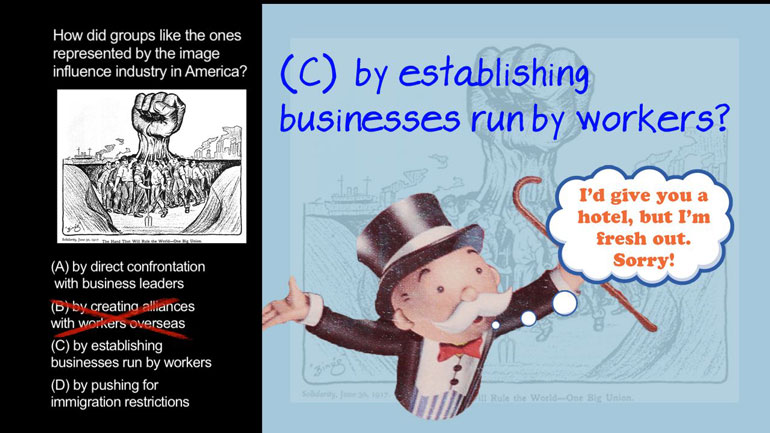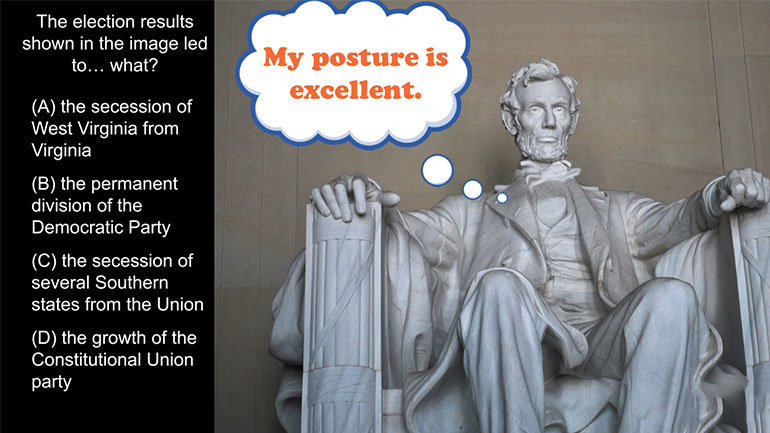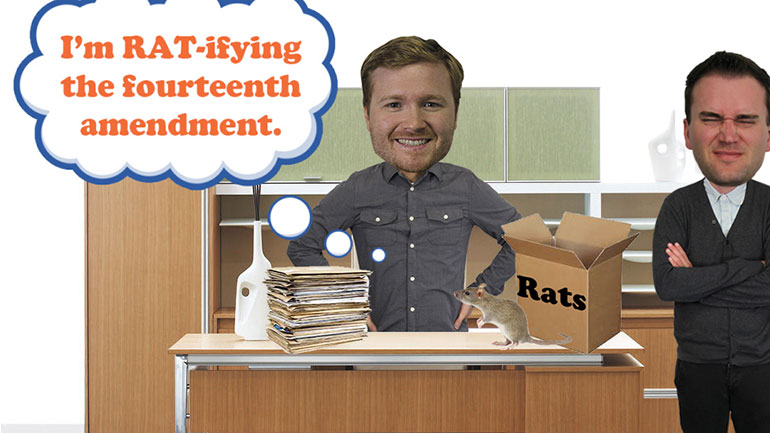ShmoopTube
Where Monty Python meets your 10th grade teacher.
Search Thousands of Shmoop Videos
AP U.S. History: Reasonings for Child Labor 2 Views
Share It!
Description:
What was the primary reason so many children worked in the mills?
Transcript
- 00:02
Oh All right A pushers We've got a paragraph from
- 00:09
the North Carolina labor statistics people here We're going to
- 00:12
ask you two questions about him but let's skin this
- 00:14
thing first They're about two hundred of engaging in class
- 00:17
of working the male one hundred children with small children
Full Transcript
- 00:19
and twelve years only trouble wages than I paid in
- 00:21
cash Traded an employee's goodbye within the company store not
- 00:24
rites and practices told back of factories Tell me cash
- 00:27
every week And I mean twelve hours only complaint Kind
- 00:30
of closing and work here Interesting Well what was the
- 00:33
primary reason so many children worked in the mills When
- 00:41
Mills and other businesses set wages for workers men were
- 00:44
paid the most women were paid less and children were
- 00:47
paid the least It was to the company's benefit to
- 00:49
hire as many children as possible Of course parents allowed
- 00:52
their children toe work because while many families were so
- 00:55
poor they just needed the added money a child could
- 00:58
earn It wasn't much money but for a poor family
- 01:00
it could mean the difference between you know eating and
- 01:02
going hungry So the answer here is See children could
- 01:05
be paid less than adults and their families needed the
- 01:08
money Well While it's true that a few people were
- 01:10
able to advance themselves by working in the mills most
- 01:13
people remained in poverty There were many systems in place
- 01:16
to keep them there like charging rent for machines used
- 01:19
and paying the workers in trade checks instead of cash
- 01:22
And then there were also while some jobs that were
- 01:24
more suited to children than two adults because of their
- 01:27
small physical size like a But it was not the
- 01:29
motivating reason so many children worked in the mills and
- 01:32
was not true for all jobs Finally most children would
- 01:35
have preferred to go to school rather than work in
- 01:37
the mills Yes School's not that bad Yeah moving on 00:01:41.21 --> [endTime] Are you see
Up Next
AP U.S. History Diagnostic 1. Relationships like the one shown in the image resulted in the development of...what?
Related Videos
AP U.S. History Diagnostic 15. How did groups like the ones represented by the image influence industry in America?
AP U.S. History Diagnostic 10. What led to the splintering of the political parties shown in the image?
AP U.S. History Diagnostic 11. The election results shown in the image led to...what?
AP U.S. History Diagnostic 12. How did the Reconstruction Acts open up political opportunities for former slaves?




